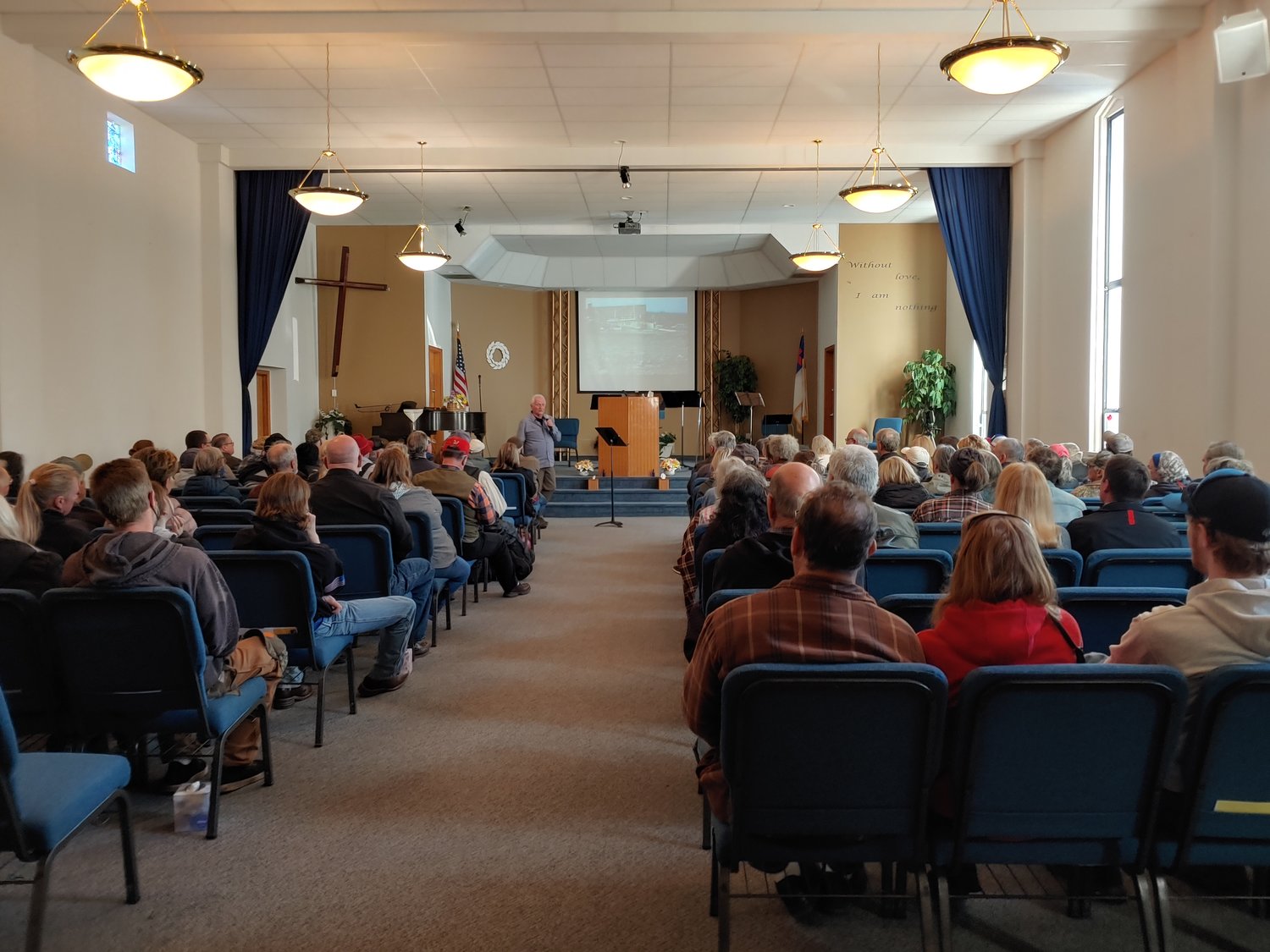
On Sunday afternoon, for the second week in a row, dozens of people crowded into a room — this time New Life Assembly of God Church in Toledo — to learn about the dangers of biosludge.
JULIE MCDONALD / FOR THE CHRONICLE
Posted Monday, March 7, 2022 4:49 pm
By Julie McDonald / For The Chronicle
When I heard about plans for spreading biosludge on Layton Prairie, I cringed.
For more than three decades, I listened to my sister-in-law Linda Zander recount the dangers of human waste spread on agricultural land that she said destroyed the dairy farm she and my brother-in-law operated for 26 years near Lynden. She collected more than 75 boxes filled with documents, photos, diaries, test results and testimonials for use as evidence in lawsuits. She said heavy metals — zinc, copper, lead and manganese — left behind by sludge spread on an adjacent neighbor’s 70-acre field sickened many of their 150 dairy cows and contaminated their wells. She contended contaminated well water gave my brother-in-law Ray Zander nickel poisoning and caused neurological damage in their grandchildren. She said 16 families experienced illness from the sludge.
During her battle, Linda founded an organization called Help for Sewage Sludge Victims and contended she often faced harassment and threats.
She filed a lawsuit in Whatcom County Superior Court against the haulers, the municipalities dumping the sludge and the neighbors who let it be spread on their farmland, but it was dismissed by summary judgment Oct. 8, 1993. She appealed, but the Washington Court of Appeals affirmed the trial court decision July 31, 1995, and the Washington Supreme Court refused to review the decision.
read full article



